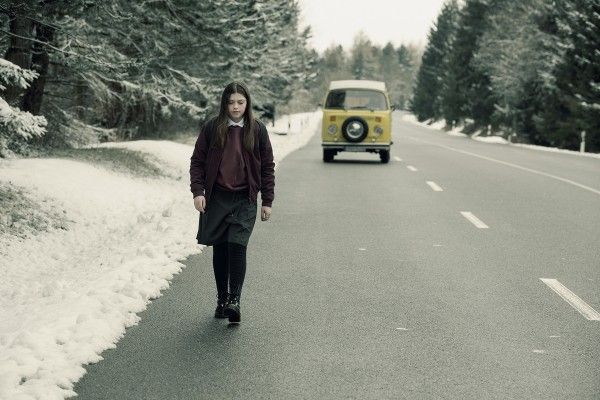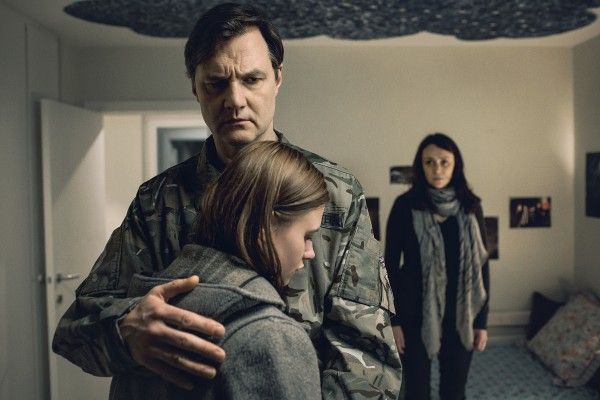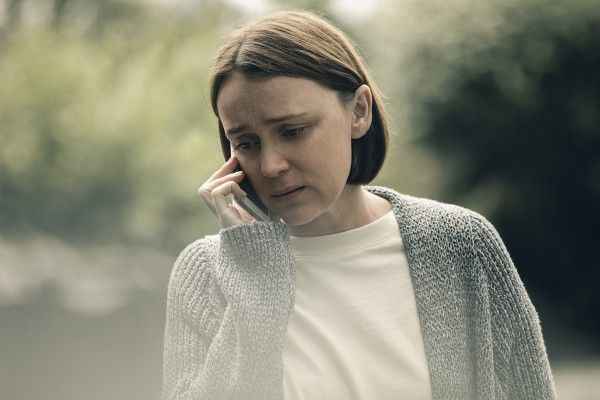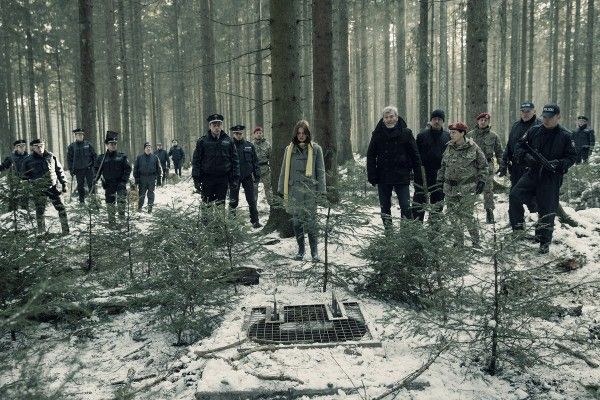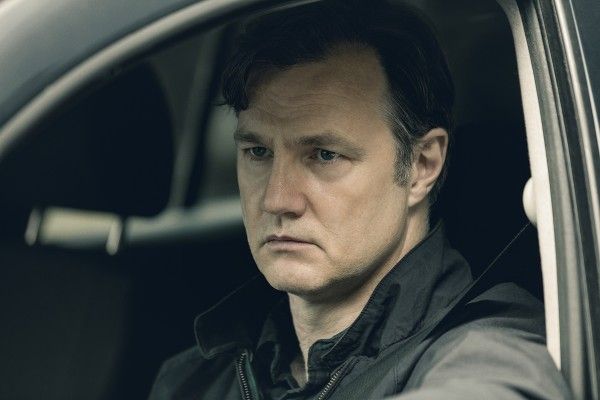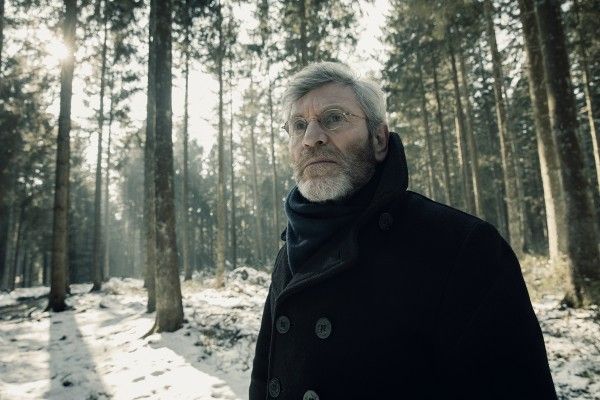Despite so much excellent television, there is still a tendency to describe great TV as being like something else, something more established as being serious or worthy like cinema or novels. And while I am a proponent of the television industry (and those who write about it) embracing TV’s unique narrative structure for exactly what it is, I must admit that the first word that came to mind when thinking about how to describe The Missing’s second season was “novelistic.” But to say The Missing is like a novel isn’t to elevate it so much as to make it even more accessible — each hour unfolds as a new chapter to a finite story, and — like a book you can’t put down — is an exceptional binge watch.
Season 2 of The Missing is connected to Season 1 in two ways, but they're slight enough so as not to deter new viewers. One, it features the same detective, Julian Baptiste (Tchéky Karyo), and in the second instance, it acts as a narrative inversion of that first season’s story. Season 1 covered one British couple in two timelines as their son went missing during a vacation in France. It tore them apart and the husband (played by James Nesbitt) was overtaken in his obsession with finding out the truth — a truth that, even when revealed, did not fully satisfy him. The ending was left open in ways that drew criticism from some, and yet, it played into the idea that for him there will never really be an end.
In Season 2, there is a new British family abroad, this time in Germany, and their missing daughter Alice (Abigail Hardingham) returns to them 11 years after she was abducted and kept in a basement. Again, the show takes place over a handful of different timelines (and countries), as the Websters — Sam and Gemma, played by David Morrissey and Keeley Hawes, as well as their son Matthew (Jake Davis) — deal with the complications of Alice’s return. She’s nearly dead, distant, and radiates an otherness with her family that sets off alarms for Gemma, ones she refuses at first to acknowledge.
Enter our tired, battered, dogged detective Baptiste, who muddies the waters further by wanting to know why Alice spoke a name as she was rescued — Sophie Giroux — the name of a missing girl in a case that has haunted Baptiste for over a decade. (If you’re curious, yes, Baptiste is reminiscent of another broken down old detective: Kurt Wallander). The connections start to form right away, and Baptiste’s questioning and interference is at first welcomed as helpful before he is eventually turned out by the police, the families, and the military garrison where Sam works, which has taken over the case.
The Missing does an excellent job of making its many, many twists feel like natural reveals, and it moves along at a quick pace while leaving enough time to explore the difficult and complicated emotions of its leads. It also moves back and forth between frustrating misunderstands and satisfying coincidences and chances, allowing viewers to see things before Baptiste does — even though he eventually learns the truth. As a mystery story, The Missing lays out enough bread crumbs for amateur sleuths to immediately be engaged and start putting together theories of the crimes, even as new reveals seem to upend expectations of what happened, when, and how. But that is the fun of watching the series, which (after 8 episodes) draws to a close in a way that is more satisfying than Season 1, but not without its own heartbreak.
Harry and Jack Williams, who created and wrote the series, are even more deliberate this time around in their storytelling. It’s tighter and more confident, and the choice to again have one director (Ben Chanan) ties the episodes together visually. Germany here can be cold and stark, but it can also be warm and lush. A side trip Baptiste takes to Iraq to try and find the truth of a cover-up through the son of a soldier can feel disconnected and overly long, but its aesthetics (the heat, the present danger) are presented in sharp relief to the cold, emotionally distant, quietly painful moments in Europe.
It is, once again, a deeply emotional story that is also in contrast to Season 1. Whereas tragedy ripped apart the Hughes, it unites the Websters (before they drift and reunite again in realistic ways). The first season’s dark ending is also in contrast to Season 2’s air of hope, even after it took a maze of crimes to uncover the truth. The story doesn’t dally in withholding clues just to frustrate viewers, either; many theories and suppositions are addressed quickly, the mystery is in how they all connect, and when Baptiste will be able to bring those responsible to justice.
The Missing’s first season was often extremely heartbreaking, but this season it prefers to wrap us up in a more traditional crime story than exhaustive sadness. As much as I liked Season 1, this approach is preferable. It’s TV for fans of crime fiction, anchored by incredible performances and a winding (but realistically plotted) narrative. Since it has already aired in the UK, though, be careful when searching information on it in case you see a twist you’ll wish you hadn’t. You will not want to spoil this uniquely engrossing experience.
Rating: ★★★★ Very good — Damn fine television
The Missing Season 2 premieres Sunday, February 12th on Starz; the entire first season will be available to stream via their app the same day.


